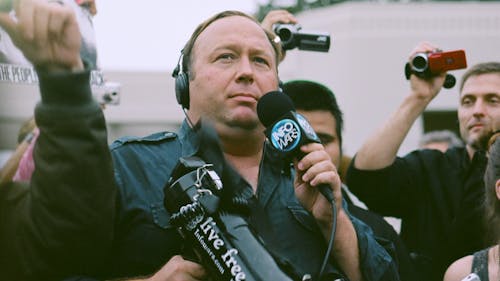Conspiracy: Unorthodox explanations for unexplainable events

It happened — the suicide of sex criminal Jeffrey Epstein was turned into a conspiracy thread on Twitter faster than you could even spell the word “conspiracy.” From “Prince Andrew did it” to the Clintons, Twitter had a field day.
But as my fingers scrolled through endless Prince Andrew GIFs, Bill Clinton conspiracy threads and tweets with the hashtag #TrumpBodyCount, I couldn't help but to think that this was all too familiar.
While Twitter conspiracists may have had different inklings as to "who" and "what," there was one similarity: conspiring in itself.
It appears that conspiracy theories, as we know them today, are older than the telegraph. Conspiracies have been around for at least 200 years, according to Literary Hub. Even Samuel Morse, inventor of the telegraph, was pegged as a conspiracist back in 1831.
“Morse gained fame by warning that the Austrian emperor had orchestrated a conspiracy to undermine the world’s greatest Protestant republic by flooding America with Catholics,” according to Literary Hub.
Not only did this gain Morse fame, it caused “free-silver populists to portray their economic plight as the result of a British banker conspiracy,” according to Literary Hub.
Conspiracy theories, while awe and laughter-inducing, are somewhat in our human nature. From Nazis fleeing to the moon to the birthplace of Barack Obama, the "fake" death of Tupac and the infamous “George W. Bush did 9/11,” it seems like nearly everything we know has a conspiracy theory attached to it.
Why can’t we mourn national disasters without Alex Jones coming up with yet another conspiracy? Why can’t we resist clicking on Netflix documentaries about aliens and UFOs? Is it that we have too much time on our hands? Are we all distrusting of the government and its secrecy, or are we all trying to escape the stresses of modern life?
Well, while those all might be true and serve as contributors, there's a simpler, all-encompassing answer: human tendency and conditioning.
Our human tendency to not want to blame ourselves for our own wrongdoings alongside our need to feel special and part of an elite class, draws many of us to believe in conspiracies, according to Time.
It makes sense. It’s easier to believe that the Mandela Effect is real than to realize you’ve been pronouncing "Berenstain Bears" wrong your whole life. It also feels kind of good to believe a select few of us might be more "woke" than the rest of us, with our extensive knowledge of parallel universes and multiple dimensions.
As humans, we're desperate to find answers to situations in life that seem unexplainable. Whether it be a breakup, failure, corruption, bad person or national disaster, we're desperate to put blame on others, trying to rationalize what happened. On a national scale, it's easier to believe powerful people and the government, whom we all know very little about, are behind some of the most unexplainable events in the world.
So, how did Epstein commit suicide on suicide watch? While it might be more rational to blame it on negligent guards, we can’t help but to blame it on a curated conspiracy. And if I’m honest, of course I’m a sucker for at least one conspiracy about Epstein’s death. I’m human, and so are you.
So no, we aren't all Jones or hiding in bunkers in the wilderness, but most of us lightheartedly believe in at least one conspiracy. And that’s just human nature for you, according to researchers.
There are extremes, of course, but for the most part, we like or retweet conspiracy theories that are kind of absurd. We’re human, it’s in our blood to gravitate toward something that's trying to explain the unexplainable, all while being extremely entertaining and mind-numbing.



